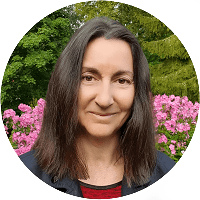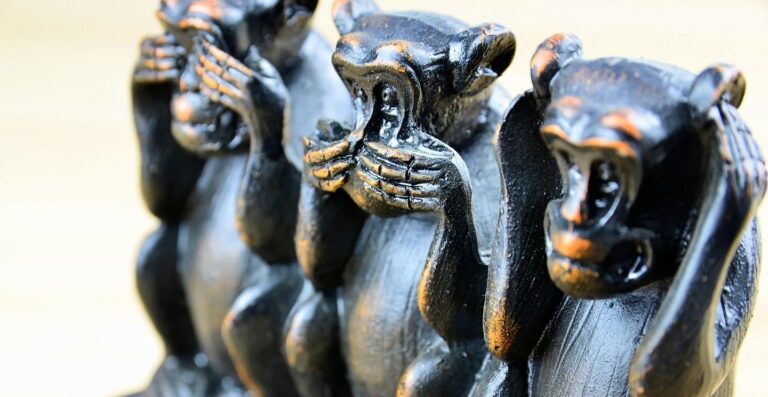What if the political battles we wage are based on a fundamental misunderstanding of happiness?
The term politics is often defined as the art and science of government. As Harold Lasswell famously stated, politics is about “who gets what, when, and how.” Yet, this perspective may only scratch the surface of a deeper truth about human fulfillment.
Politics as a Competition of Narratives
Upon closer examination, politics is a competition of narratives that define the path to happiness. The work of politicians is to represent specific views about the conditions and resources necessary for human happiness, and design ways to guard and increase these resources.
Different countries, groups and politicians hold different views on what is required for happiness. These lists are often long and could include anything and everything. Respect for one’s cultural, territorial, or religious identity and values, physical, mental, and financial well-being, good living conditions, opportunities for work, education and development, inclusion in a family and community, appreciation and admiration from others, and any number of other factors can be considered necessary for human happiness.
The Roots of Political Polarization
The huge political polarization and conflicts in our world today are based on the differences in these lists. Each group defines problems and priorities differently and therefore has other solutions. As each group continues to define and refine its particular perspective, the distance and contrast to other groups increase. This can lead to extremism, which is simply a willingness to go all the way in the pursue of a particular path to happiness.
With such great polarization and so much collective energy poured into the different convictions, it is very hard to imagine how we could ever return to harmony on our planet, and we seem to have no alternative but escalate the conflicts until someone wins, once and for all.
Transcending Political Conflicts
But there is a way to end these conflicts, and it is incredibly simple. It requires only one thing: the realization that we don’t need to fight over the best way to achieve or protect happiness because, in reality, happiness is permanently within each of us.
The Illusion of Conditional Happiness
This assertion may seem outrageous or naïve, but it is a view shared by many wisdom traditions, which propose that people are taught to believe happiness is conditional, when in fact, it is not. We have been told that we need a strong, respected, and admired identity and a whole host of conditions in order to be happy. But that is an illusion, according to some.
Several wisdom traditions and philosophies emphasize the concept of intrinsic happiness. For instance, Buddhism teaches that true happiness comes from within and is achieved by overcoming desires and attachments through practices like meditation and mindfulness. Stoicism, an ancient Greek philosophy, advocates for finding contentment by aligning one’s life with nature and focusing on what can be controlled, thereby fostering inner peace regardless of external circumstances. Similarly, Vedanta affirms that our true identity is saccidānanda, which means existence, consciousness and bliss. These traditions suggest that happiness does not depend on external factors but is a state of being that can be unveiled through different practices and deep understanding.
The very belief that we can’t or should not be happy unless certain conditions are fulfilled creates negative emotions and hinders us from noticing the state of happiness we all have access to. Having “lost” happiness, we create an opponent who is seen as responsible for our suffering. We then gather around a strategy to bring back happiness, and the political chase begins. Of course, if we have forgotten what and where happiness is, we will never find it by winning over our opponents or by getting those advantages and resources we believe are the source of our inner smile.
The Choice Between Illusion and Reality
We do not need to constantly chase happiness. We simply need to be still enough to notice that it is our most natural, ever-present state. The state of happiness is also a state of love, openness, creativity, joy and fulfillment. It is where we are as soon as we renounce the stories of the mind.
If this is true, then it means that the entire business of politics is based on an illusion. The effort of protecting the little happiness we imagine is left, the fight for all the things that will eventually give us happiness, is wasted energy. The choice is not about the left or the right path when they are both seeking something we never lost. It is about standing firmly in the happiness at our core, and taking practical action from there.
There is a huge difference between the logic of suffering and lack, and that of fulfillment and happiness. An individual, a group or a nation that is grounded in unhappiness will fight anyone they deem responsible or dangerous, increasing suffering, while those grounded in unconditional happiness will create systems that affirm the inner brightness, with no fear of losing the most important resource we have, and with the sole purpose of allowing and sharing everyone’s joy, creativity and love.
Three Practical Steps
It might be worth remembering our intrinsic happiness, especially this year when more than one hundred countries with nearly half the global population are voting for one political direction or the other, and when so many violent conflicts rage globally. If we succumb to the fear of losing or having lost something vital, then, in the words of William Blake, “we are led to believe a lie”.
In light of these insights, here are 3 practical steps we can take to strengthen our awareness of intrinsic happiness:
- practice mindfulness and meditation to become more aware of your own presence and reduce attachment to external outcomes.
- cultivate gratitude by regularly reflecting on the positive aspects of life, which can shift focus from what is lacking to what is abundant.
- engage in community service or acts of kindness, because helping others can restore one’s sense of fulfillment and connection.
Integrating these practices into our daily life will help us more easily remain connected to our core happiness, beyond the turbulence of political and social narratives.
Final Thoughts
The truth is that nothing and nobody has the power to take away our most important treasure and our capacity to create a beautiful world, if we choose to remain grounded in happiness, joy and love. We are and remain free to be the light shining brightly in our hearts and to act from that place in every moment.
Sources:
Lasswell, H. D. (1936). Politics: Who gets what, when, how. Whittlesey House.
Blake, W. (1863). The complete poetry and prose of William Blake. (D. V. Erdman, Ed.). Anchor Books. (Original work published 1794)
 Aurora Carlson is an Ayurvedic counselor, meditation teacher, social worker, linguist, and the Chopra Foundation regional advisor for Sweden. Visit her on: auroracarlson.com.
Aurora Carlson is an Ayurvedic counselor, meditation teacher, social worker, linguist, and the Chopra Foundation regional advisor for Sweden. Visit her on: auroracarlson.com.






